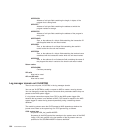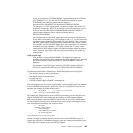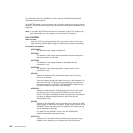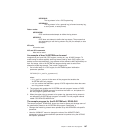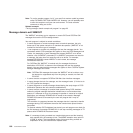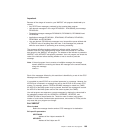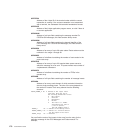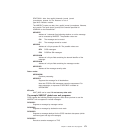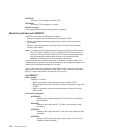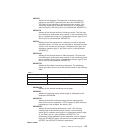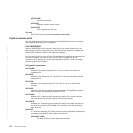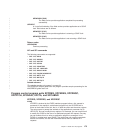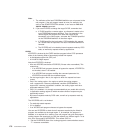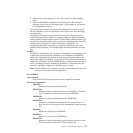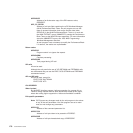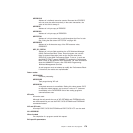DFH$SXP5
Reroute a TDQ message to another TDQ
DFH$SXP6
Reroute a TDQ message to a console.
Related concepts
“The message domain sample exit programs” on page 23
Monitoring domain exit XMNOUT
XMNOUT is invoked at the following event points:
v Before an exception class monitoring record is passed to SMF
v Before a performance class monitoring record is written to the performance
record buffer
v Before a transaction resource monitoring record is written to the transaction
resource record buffer
Note: If performance class and transaction resource monitoring are both active in
your CICS region, XMNOUT can be invoked twice for the same event. For
example, if the event is end-of-task and CICS has both performance class
data and transaction resource data to move to the appropriate buffer,
XMNOUT is invoked once for each monitoring record type.
You can use this exit to examine the record, to suppress its output to SMF, or to
change the data it contains. You must be ensure that any changes you make do not
conflict with the dictionary description of the data.
You can also add data to performance class data records. To do this you need to
define dummy user event-monitoring points (EMPs) in the monitoring control table
(MCT) to reserve data fields of the required size and type.
Exit XMNOUT
When invoked
XMNOUT is invoked:
v Before an exception class monitoring record is written to SMF
v Before a performance class monitoring record is buffered for a later write
to SMF
v Before a transaction resource monitoring record is buffered for a later
write to SMF
Exit-specific parameters
UEPTRANID
Address of the 4-byte transaction ID. This field is not available at
task termination.
UEPUSER
Address of the 8-byte user ID. This field is not available at task
termination.
UEPTERM
Address of the 4-byte terminal ID. This field is not available at task
termination.
UEPPROG
Address of the 8-byte application program name. This field is not
available at task termination.
172 Customization Guide



